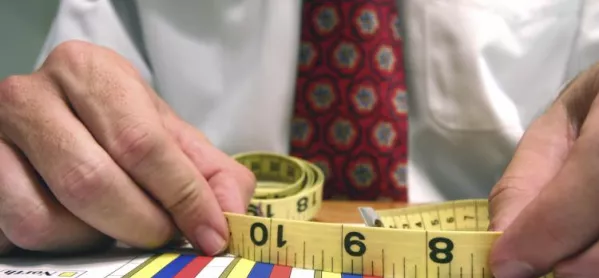- Home
- UK teenagers better at working together than they are at maths
UK teenagers better at working together than they are at maths

Teenagers in the UK are significantly better at working together to solve problems than they are at maths or reading, according to a Pisa report.
The UK came 15th in a new league table of ”collaborative problem solving” compiled by the Programme of International Student Assessment (Pisa).
Singapore once again topped the tables, as it did in a separate report ranking countries on pupils’ reading, maths and science skills.
But, while the correlation with Pisa’s core subjects was strong, there were some surprises - with pupils in China, who were ranked in the top 10 in both science and maths, doing less well at working together, coming in at 26th.
Whereas the United States, which did not make it into the top 30 for science or maths, came 13th in the collaborative problem-solving test.
The OECD average score was 500 and the UK scored 519.
Pupils’ Pisa results
Internationally, girls were better than boys at working together to solve problems - this was even more pronounced in the UK (a gap of 34 points) than on average (a gap of 29 points).
While, on average, teenagers who played video games performed slightly worse on the tests than students who did not, pupils who accessed the internet and social media did better.
Previous research has found that more than a third of teenagers in the UK are “extreme internet users” meaning they are using the internet for six hours a day or more, while 95 per cent of 15-year-olds use social media before or after school.
The report also finds that pupils who are asked to discuss their ideas in class are more likely to have a positive attitude to collaboration - and those who say they have talked to their parents after school tend to do better as well.
‘Give students more ownership’
“In a world that places a growing premium on social skills, a lot more needs to be done to foster those skills far more systematically across the school curriculum,” Andreas Schleicher, director for education and skills at the OECD, writes in the foreword to today’s Pisa report.
“Strong academic skills will not automatically also lead to strong social skills. Part of the answer might lie in giving students more ownership over the time, place, path, pace and interactions of their learning.
“Another part of the answer can lie in fostering more positive relationships at school and designing learning environments that benefit students’ collaborative problem-solving skills and their attitudes towards collaboration.”
Sample test
In order to test collaborative problem solving, pupils were asked to complete online interactive scenarios. Each scenario took between five and 20 minutes to complete and involved interacting in a chat-room style with programmed computer agents.
In the sample test given by Pisa, called Xander, students were told that their teacher had put them in a three-person team for a competition. The first team to correctly answer 12 questions about the fictional country of Xander would win a prize.
The pupil had to work with “Alice” and “Zach” to work out a strategy on how to answer the questions, find the answers and fix problems with team members as they arose.
The Pisa findings come as a poll finds that most teachers do not think the UK education system is equipping young people with “21st-century skills”, such as creativity and problem-solving.
Problem-solving problems
Nesta, a charity that supports innovation, found 67 per cent of teachers do not think the UK’s education system is currently equipping young people with 21st-century skills and that only 54 per cent of teachers in England have a clear idea of what collaborative problem solving means.
The survey also found that 79 per cent of teachers say they cannot remember ever having had training in how to incorporate collaborative problem solving into their lessons.
“Some of the most important skills needed now and in the future are missing from government education policy and from school curriculums,” Geoff Mulgan, chief executive of Nesta, said.
“This blind spot will prove costly for young people and for the UK. As this poll shows many teachers realise this is a problem that urgently needs to be fixed. Other countries - such as Finland - have grasped how important it is for students to learn how to collaborate in solving problems”.
The poll was taken through the Teacher Tapp app, with questions asked on different days between 2 November and 7 November. Between 1,146 and 1,233 teachers answered the questions each day.
Want to keep up with the latest education news and opinion? Follow Tes on Twitter and Instagram, and like Tes on Facebook
Keep reading for just £1 per month
You've reached your limit of free articles this month. Subscribe for £1 per month for three months and get:
- Unlimited access to all Tes magazine content
- Exclusive subscriber-only stories
- Award-winning email newsletters



